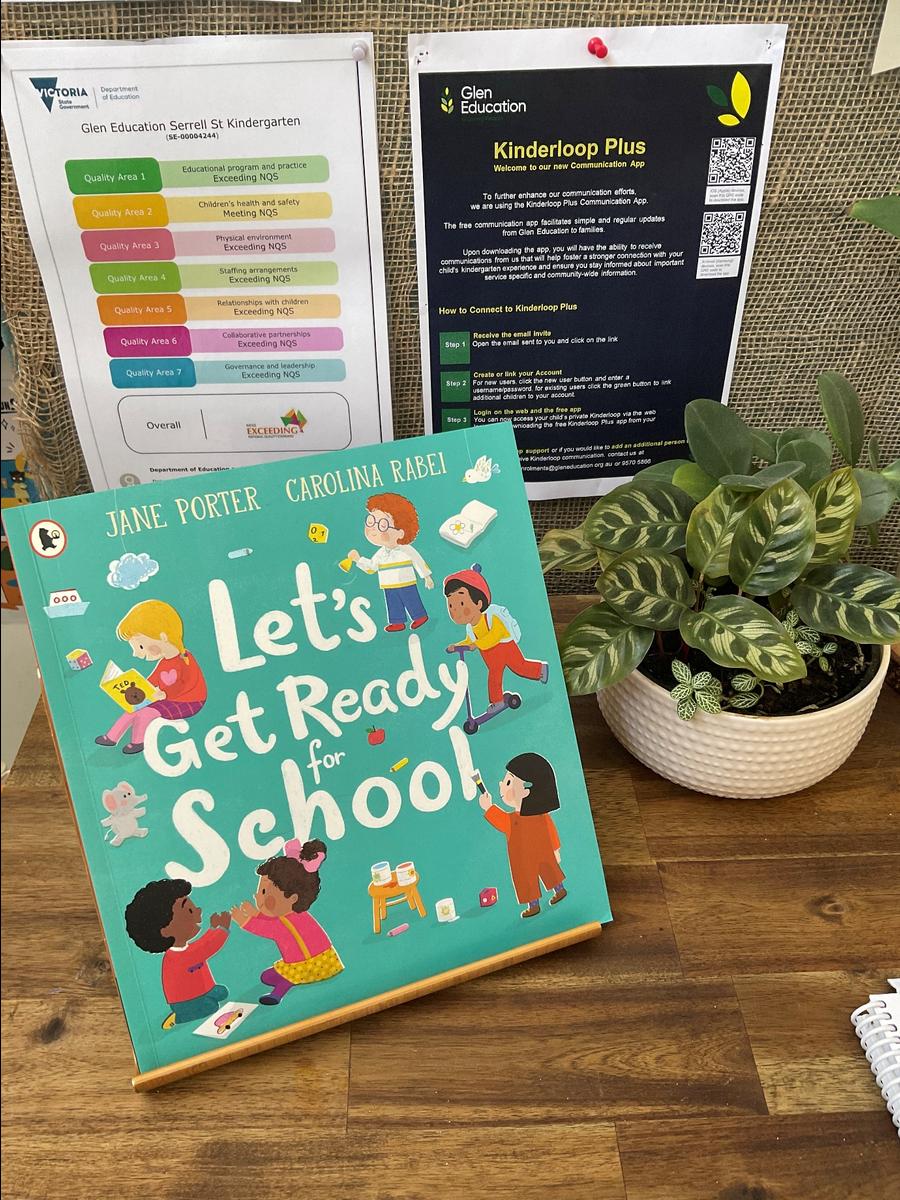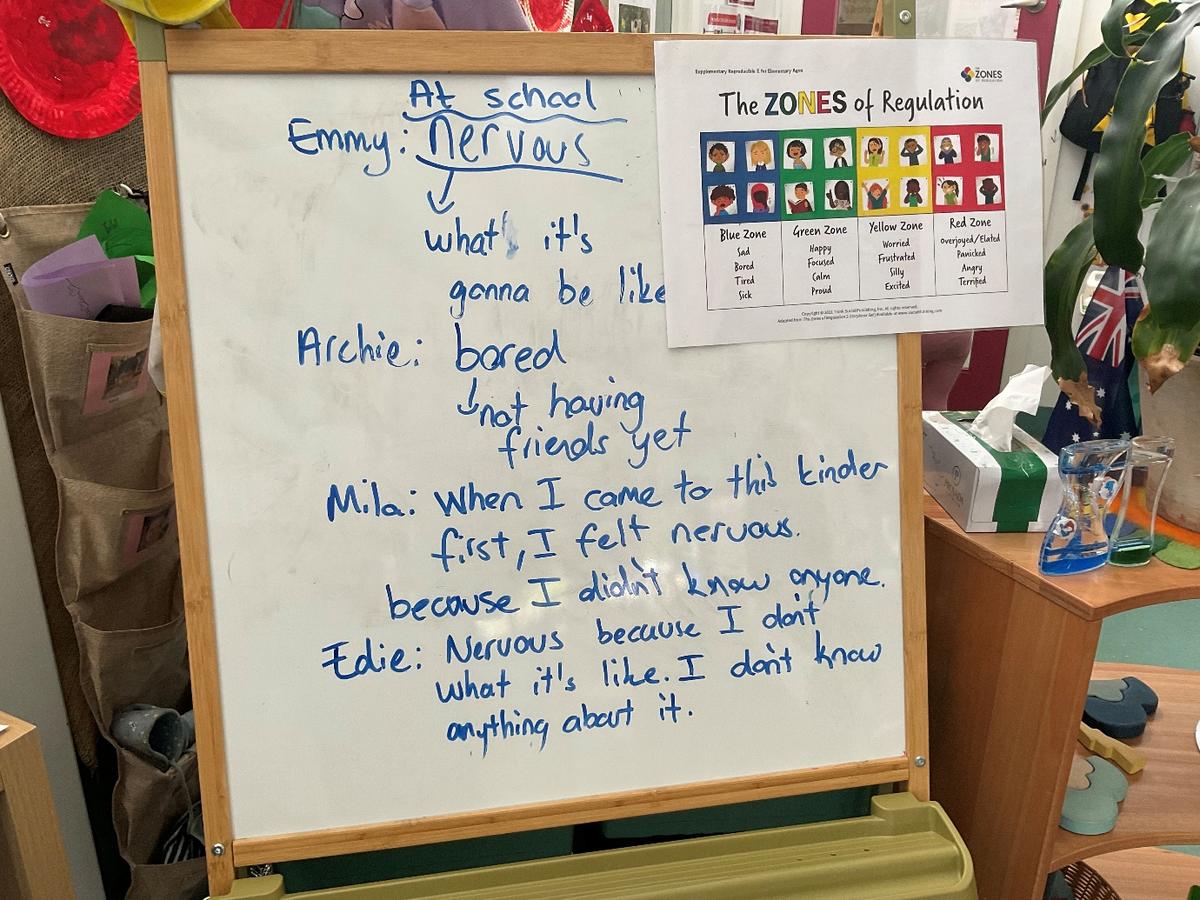Glen Education Serrell Street

Positive school transition and continuity of learning in school
By Grace Liu, Early Childhood Educator
Transition to school from kindergarten is a life event for children in their early childhood. According to the Victorian Early Years learning and Development Framework (VEYLDF), transition to school means that starting school is an important life transition for children and their families, marked by both excitement and challenges as they all adapt to new roles, identities, expectations, interactions, and relationships (Department of Education and Training 2017).
Recognising that the transition to school is an ongoing process, we as educators and teachers at Glen Serrell Street Kindergarten are committed to ensuring every child experiences a positive and supportive transition. Throughout the year, we have been actively preparing for this important step to foster a smooth transition for our children.
Program - School transition
School transition encompasses not only academic readiness such as literacy and numeracy skills, but also contains developmental and social-emotional readiness (Rouse et al., 2023). Throughout the year, children at Glen Serrell Street Kindergarten have been offered many opportunities to engage in play-based learning that fosters their literacy and numeracy skills. And, we have started to share stories with children about starting school and encourage open discussions. This approach helps children to identify and address any concerns and challenges which they may have regarding to school transition. In additional, our program has supported the development of children’s gross motor, fine motor, cognitive, and language skills through various activities, such as art and craft, painting, ball play sessions, group time, and show-and-tell experiences.
Social-emotional readiness includes essential components such as social skills, emotional awareness, behaviour, resilience, and independence, all of which are strong indicators of future school success (Rouse et al., 2023). Children who develop positive relationships, manage their emotions effectively, and demonstrate resilience are better equipped to thrive in the school environment. Therefore, supporting social-emotional growth is crucial for ensuring a smoother and more successful transition to school life. In our program, we have discussed concepts such as bucket filling, the zones of regulation, and body boundaries to enhance children's capacity to regulate their behaviour and emotions while engaging in positive social interactions. We have found that social-emotional learning enables children to communicate their feelings and needs, facilitating a positive transition to school.
In Term 4, children who will be starting school next year have begun their orientation sessions. We strongly encourage them to share their experiences with their peers during group time. For example, we recently held a show-and-tell session where a child showcased her school bag and discussed her first orientation day at school. We also facilitated a group discussion where children expressed their feelings about starting school. By sharing their experiences and emotions, children can voice their concerns and excitement about the school transition. Younger peers aged 3-4 years can also benefit, gaining valuable insights into what the school transition entails.
Additionally, we are going to set up school uniforms and related items, such as schoolbags, in the home corner to support dramatic play. This approach promotes independence, encourages role-playing, and helps children take on responsibilities in a playful and engaging manner as they prepare for the transition to school.
Kindergarten routine – continuity of learning
At Glen Serrell Street Kindergarten, we prepare children for a smooth transition to school through our routines, which are designed to facilitate continuity in their learning. Children practice school routines such as group time, snack time and lunch time. They also develop teamwork, self-reasonability and self-help skills by picking up their belongings, refilling their water bottles and tidying up the classroom alongside educators and peers. These various tasks and actions within the daily routine provide an appropriate degree of continuity, helping children feel ready for school. When children are familiar with the situations they encounter in a new environment, they can adjust more easily (Margetts, 2000).
Partnership with families
When children are born, their parents and caregivers are their first teachers, significantly influencing their development in various areas such as social skills, values, emotions, and literacy and numeracy skills throughout their lives (Price, 2017). We recognize the importance of family in supporting children's development and learning, which is why we always strive to build constructive and respectful connections as well as strong partnerships with families.
Families play a vital role in facilitating a smooth transition to school for children. We maintain open communication with families to share concerns, set goals, and gain insights into their child's interests and strengths. We value their input, which helps us create a supportive environment for school transition that aligns with each child’s individual needs and preferences. Additionally, families are encouraged to establish simple routines at home, such as reading together, practicing self-help skills, and discussing what to expect at school. This collaborative approach fosters a joint effort between the kindergarten and families, ensuring a smooth transition for the children.
References
Department of Education and Training. (2017). Transition: A Positive Start to School Resource Kit. Department of Education and Training Melbourne. https://www.education.vic.gov.au/Documents/childhood/professionals/Transition-to-School-Resource-Kit.pdf .
Margetts, K. (2000). Transition to school: looking forward. In Putting Children On Top: Issues of Policy and Practice for the New Millenium. Australian Early Childhood Association.
Price, G. (2017). The importance of parents as first teachers. My Child Magazine. Retrieved August 29, 2023, from https://www.mychildmagazine.com.au/importance-parents-first-teachers/.
Rouse, E., Nicholas M. & Garner, R. (2023). School readiness – what does this mean? Educators’ perceptions using a cross sector comparison, International Journal of Early Years Education, 31:1, 185-199 https://doi.org/10.1080/09669760.2020.1733938.


